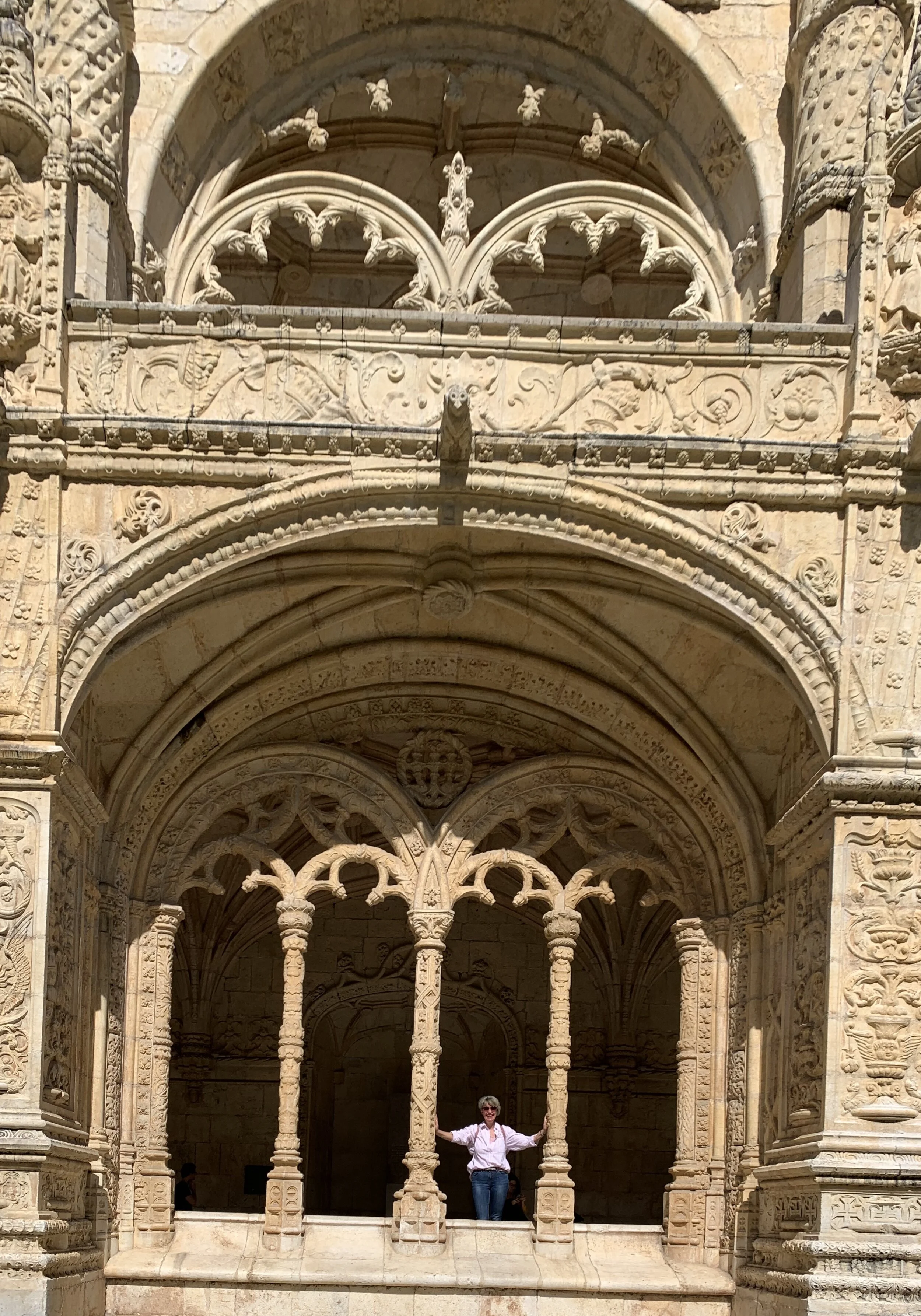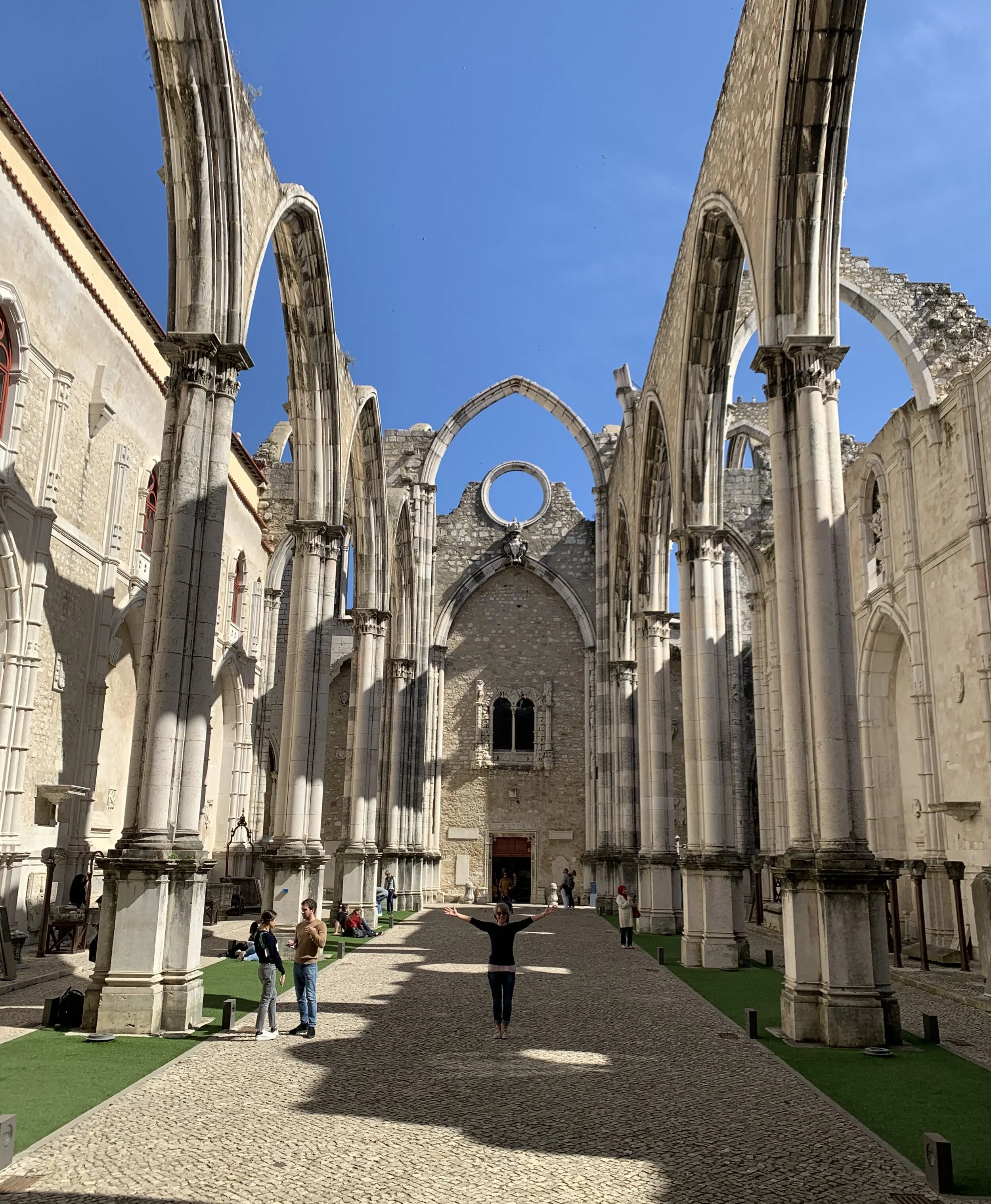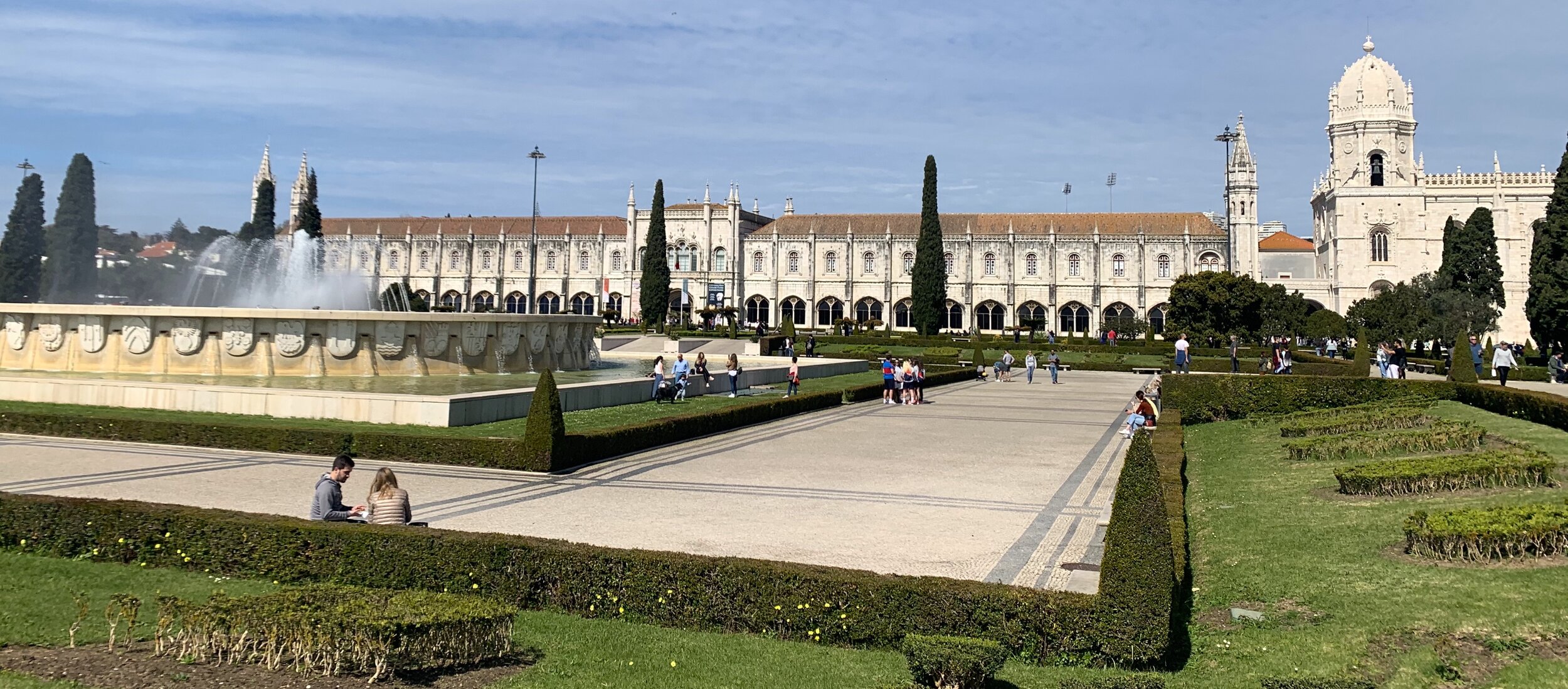15 great things to do and see on a city break in Lisbon
I’ve waited fourteen months to be able to write this, and with the announcement, at the time of writing, that Gibraltar and Portugal are the only European destinations on the current green travel list, it seems its moment has finally come!
In March 2020, just a whisker before Covid restrictions and lockdowns started closing down the world, I spent three fabulously enjoyable days in Lisbon with my oldest friend, exploring and soaking up the culture, food and atmosphere of this historically steeped, architecturally and culturally fascinating, and deliciously satisfying city.
Here, then, all this time later, are my recommendations for 15 things to do and see on a city break in Lisbon. if that sounds like a lot, almost all of them are within an easily accessible area - mostly around the city centre and along, or not far from the waterfront - with great transport links between them. And the one that isn’t, is only a half hour train ride away and really mustn’t be missed.
We managed to do them all (with one exception, which I’ll get to) comfortably in the three days with plenty of food, drink and watch-the-world-go-by stops.
The best way to start any visit to Lisbon is on board the
1. The No. 28 tram
A distinctive yellow number 28 tram
These distinctive yellow painted, restored 1930s Remodelado streetcars are the perfect way to discover the often steep and narrow streets of Alfama, the old city, its historic heritage and typical neighbourhoods. (Be warned, it does get very crowded so you may need to queue and stand inside).
The tram delivers you to both Se Cathedral and Sao Jorge Castle (see below) but also, if you (accidentally, ahem) stay on to the end of the line, the less visited but fascinating
2. Prazeres Cemetery
One of the avenues of mausoleums at Prazeres Cemetery
This huge 19th century cemetery (it’s practically like a little town) is where the most important families of Lisbon are buried. Their mausoleums and tombs were designed by architects and sculptors to be as impressive as possible. The cemetery also houses the largest and oldest collection of cypress trees in the Iberian peninsula, and offers a spectacular view of Lisbon, the bridge and the river.
Back along the 28 tram line are two must-see stop-offs
3. Se Cathedral
Soaring gothic arches in Se Cathedral
The monumental walls of The Se, flanked by two clock towers, make it look more like a fortress than the significant religious building it is. Originally built in the 12th century by Christian crusaders, the history-seeped interior features soaring gothic arches, vaulted ceilings, medieval statues and an impressive Romanesque rose stained-glass window.
4. Sao Jorge Castle
Sao Jorge Castle is one of Lisbon’s best known landmarks
Straddling the top of the Sao Jorge hill, the castle is probably one of Lisbon’s most recognisable landmarks. Built as a small fortress in the fifth century, it was modified and enlarged by Moors ten centuries later and then, a century after that, transformed into a Royal Palace. Completely restored in 1938, there are still ancient ruins being uncovered on the site. Exploring its towers (11 of them) and turrets, and wandering round its small museum is a delight, but the stars of the show are the dramatic views it affords across the city and beyond.
The views over the city from the castle are spectacular
Unmissable, both literally and in terms of itinerary planning, is
5. Praca do Comercio
The huge Praca do Comercio is Lisbon’s largest plaza
Lisbon is a city of plazas, but none are as impressive, either in scale and location, as Praca do Comercio. Surrounded on three sides by distinctive yellow-fronted buildings, and opening on the fourth to the Tejo Estuary, this imposing space is commanded over by a striking statue of Dom Jose 1, and dominated on it’s northern side, by the glorious Rua Augusta Arch. Take the lift to the top of the arch for more panoramic views of the city, and then pay a visit to the Lisboa Story Centre before repairing to Lisbon’s oldest restaurant, the Martinho da Acarda which dates from 1782.
The view of the plaza from the top of the Rue Augusta Arch
Walk through the arch and along the mosaic-tiled pedestrian street beyond towards the city centre and you’ll come across one of Lisbon’s most unusual features, and quite possibly one of the world’s most beautiful lifts
6. Santa Justa Lift
Could the Santa Justa lift be the most beautiful in the world?
Standing 45m tall, this is theoretically the fastest way to get from the the Baxia neighbourhood of the city to the Barrio Alto. I say theoretically because there are always - be warned, slow moving - queues. But stick out the wait, because this ornate elevator, built in homage to the French architect Eiffel, has an observation deck at the top which offers, yet more, fabulous views, especially of the castle.
The viewing platform at the top of the lift
It also gives convenient access to
7. The Carmo Ruins and Archaeological Museum
The Carmo Ruins - a powerful reminder of the forces of nature and man
Once one of the most beautiful Gothic temples in Lisbon, an earthquake in 1755 seriously damaged the building and destroyed almost all of its contents. Although reconstruction began in 1756, it was stopped nearly a century later when the religious orders were abolished in Portugal, leaving the naves, transept and chapels uncompleted. An evocative reminder of the power of nature and the doctrinal fluctuations of man.
The number 15 tram will deliver you to what is deservedly one of the most visited sites in Lisbon,
8. Jeronimos Monastery
The vast Jeronimos Monastery
It took a century - from 1501 to 1601 - to build this vast monastery on the site of the church where Vasco de Gama (who is entombed here) set off for his famous voyage to India. The ornately beautiful limestone-clad building is is a combination of Gothic, Moorish, and early Renaissance architecture, and it’s impossible not to be dazzled by its scale and elaborate grandeur.
Impossible not to be dazzled by it’s soaring interior…
Don’t leave the monastery without spending some time in the stunning, tranquil cloister
…or calmed by its beautiful cloister
A short walk across the gardens in front of the monastery, is one of Lisbon’s most imposing monuments
9. Padrao dos Desccobrimentos, The Monument of the Discoveries
Monument of the Discoveries - celebrating Portugal’s seafaring history
Dominating the bank of the Tejo Estuary, this 52 metre high, limestone, concrete and steel construction replaced the crumbling original which was built for the 1940 World Fair. It celebrates Portugal’s early explorers and visionaries who established the country as one of the leading seafaring nations in the world.
A trip to to the viewing platform at the top is well worth it for the fabulous vistas and the birds-eye view of the map of the world as discovered by Portugal on the entrance square in front of the monument.
The best view of the map of the world as discovered by Portugal - from the top of the monument. And with the Jeronimos Monastery in the bacaground
A disclaimer at this point. The monument is only a short way along the estuary from another of Lisbon’s must-see sites, which - for timing reasons too boring to explain - we, er, didn’t manage to see.
10. The Belem Tower
The 16th Century Belem Tower
Like the monastery, this is a UNESCO World Heritage site and absolutely the best reason for me to have to return to make up for its exclusion. Do add it to your itinerary, though (just check the opening and closing times, ahem…). The five-storey, 16th century fortress served as an embarkation and disembarkation point for Portugal’s explorers and the ceremonial gateway to Lisbon.
11. Pastéis de Belém
Don’t leave Belem without sampling the original - and arguably the best - Portuguese custard tarts at Pasteis de Belem
We did, however, manage not to leave this western, Belem, district without availing ourselves of the other not-to-be-missed experience. A visit to Pasteis de Belem, the original home of the world-famous Portuguese custard tarts. The monks from the Jeronimos monastery sold these in their adjoining sugar refinery. In time the owner of the refinery bought the recipe (which remains the country’s best-kept secret) and the outrageously delicious creamy, flaky tarts are still made from that original recipe. Obviously you can buy these sweet treats all over the city, but it’s hard to argue that these aren’t the original and the best. (You may have to queue, whether to buy, or to sit in the cafe and eat, these famous tarts. But they’re worth the wait)
There are two fun stops between Belem and the central city centre . The first (travelling geographically from west to east) is the
12. LX Factory
Buzzy LX Factory
A former textile factory, this has been transformed into a buzzy, creative centre of shops, market stalls, bars and restaurants, which also hosts events and music performances.
Closer to the city centre is the
13. Time Out Market
Food glorious food at the Time Out Market
Housed in the historic Mercado da Riveria, this extensive food market boasts not only the traditional fish, meat and fresh produce stalls where many locals do their shopping, but more than 40 drink and restaurant stands, many representing some of Portugal’s top chefs. Come armed with a hearty appetite!
The out-of-town destination that more than warrants the best part of a day to explore is
14 + 15 Sintra and the Palace of Pena
A half-hour train ride - departing from what I would venture to suggest is one of the world’s most attractive railway stations - Sintra is yet another UNESCO World Heritage site and home to possibly one of the most bonkers buildings you’ll ever see.
Let’s start with the transport though. Here’s that gorgeous station
Lisbon’s beautiful central railway station
When you arrive in Sintra, I’d recommend walking up the hill to the historic centre of the town (it takes about 15 mins) . Once you’re there, spend some time wandering round the lovely Palace of Sintra with it’s distinctive twin cone towers, and exploring the small, winding Medieval streets that lead off the square.
The Palace of Sintra with it’s distinctive twin cone towers (no filter on the sky - it really was that colour!)
From there, there are several ways to get up to the main attraction, the Palace and Park of Pena, but I wouldn’t recommend walking. It’s quite a long way, and all uphill. For my money, the best transport option is one of the many tuk tuk’s that ply their trade along the route. (Depending on the driver, the journey can be more adventurous than you might imagine. Ours clearly had aspirations to be a Formula 1 driver. Those smiles on our faces are of relief that we arrived in one piece!)
A tuk tuk is a great way to get up to the Palace of Pena (if a bit hair raising)
Whatever transport you take, you won’t forget your first sight of the palace in a hurry. Considered the greatest example of 19th century Portuguese Romanticism, this is what I imagine Disney would come up with if it was given free-rein to create its dream historic castle. Onion domes? Absolutely. Moorish gates? Why not. Ornate turrets? Of course. Different colours for each section? Oh, go on then.
The unforgettably bonkers Palace of Pena. As designed by Disney (obviously not really)
Truly this is a palace like no other, and as memorably ornate inside as it is outside.
As ornate inside as it is outside
Rather than ride back to town from the front of the palace, walk down through the cool beauty of the wooded and planted park that surrounds it (there are well maintained paths through the, sometimes steeply inclined, grounds) and pick up one of the various methods of transport depending where you exit.
If you have time to spend more time in Sintra there are other sites to visit including an impressive Moorish Castle and another, considerably more restrained, former palace. Not to mention the Portuguese School of Equestrian Art. But for a short visit, that’ll more than fill a day.
If breaking yourself back into travelling with a city break appeals to you, then I can’t think of a city more rewarding, enjoyable or satisfying - in every sense - than Lisbon.
Other posts you’ll enjoy
Another fabulous European city to add to your to-travel-to list
Or maybe a Scandinavian capital?
If you prefer to stick to the UK, this is a gorgeous place to visit




























